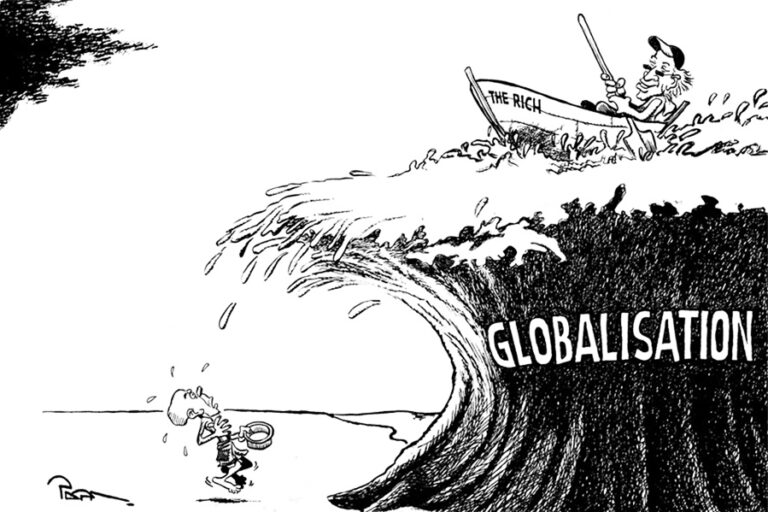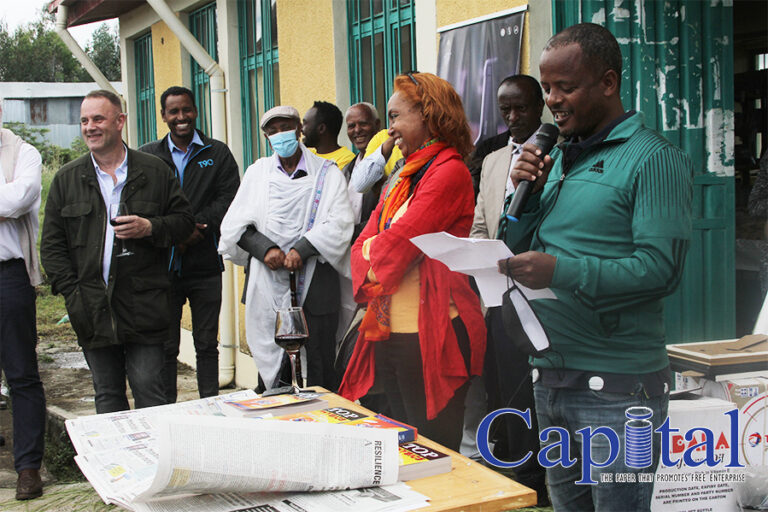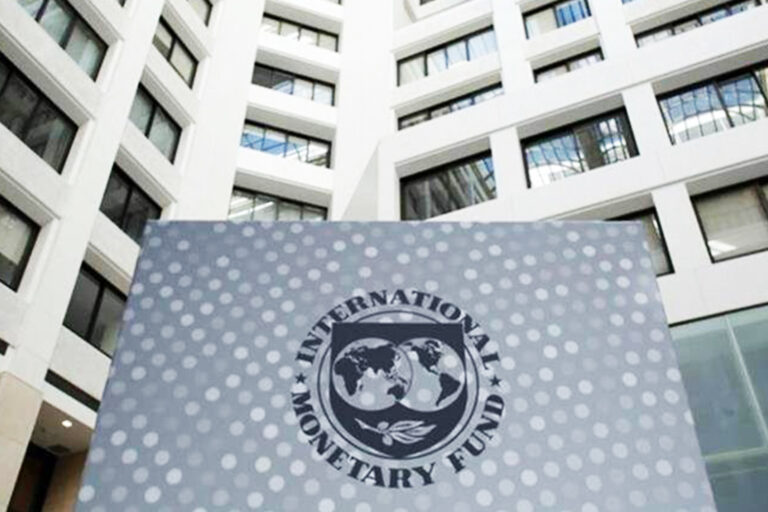Unlike the previous practice Ethiopian Trading Businesses Corporation (ETBC) is going to directly buy strategic commodity.
The corporation that is under Ministry of Trade and Regional Integration has floated a tender to procure 400,000 metric tons of wheat directly.
Usually Public Procurement and Property Disposal Service (PPPDS), which is under Ministry of Finance (MoF), carry out a tender to buy strategic commodity like wheat on behalf of any public organizations or enterprises.
However, this time around the government has given a green light for ETBC to manage the bidding process unlike the previous experience.
Experts on the sector recalled that there is was not mandatory to use PPPDS for procurement but the procurement of strategic commodities that are also known as political commodities are directly managed by MoF on behalf of the government and the ministry using PPPDS as instrument to manage the process.
They said that now it shall be the direction of the government to allow ETBC, which includes the former Ethiopian Grain Trade Enterprise, to conduct the procurement as the previous experience before the process was fully taken by MoF via PPPDS, which formed in 2010 under the Council of Ministers regulation.
PPPDS is currently floating a bid for the procurement of 300,000 metric tons of wheat on behalf of National Disaster Risk Management Commission that will be opened on November 9.
Experts said that the government may be taking a new direction to give the procurement process for ETBC to diversify the procurement process besides PPPDS.
The wheat procurement attempts in the past almost two years via PPPDS had frequently failed that is stated by experts as the current decision of the government to allow ETBC, which was established in 2015 by the Council of Ministers Regulation through amalgamation of the Ethiopian Grain Trade Enterprise, the Ethiopian Fruits and Vegetable Marketing, the Ethiopian Trading Enterprise and the Procurement Services Enterprise, to buy its grain by itself.
There are currently about three public bodies including Ministry of Agriculture buying wheat.
ETBC and the former Ethiopian Grain Trade Enterprise engages on wheat procurement through PPPDS to stabilize the local market.
This process mainly commenced about 13 years ago when the government understood that the local production of wheat is lagging behind the demand.
The reformist government for the past two years has registered promising success to boost the wheat production locally. To attain the goal, government has designed a strategy to introduce new wheat production areas including lowland farming, irrigation and dry season farming that helps the government to cover the shortage of the grain when the bidding process failed in the past couple of years.
Recently, Prime Minister Abiy Ahmed disclosed that the harvest from the new scheme has supported the government to cover the operation to provide aid for those who are displaced in the instability in the country.
The country spent about a billion dollars per year for wheat procurement to which the government is working strongly to replace by local production under the initiative mentioned above.
Experts on the wheat bid told Capital that the government might have decided to give ETBC a mandate to reduce the risk but it would have negative effect when different entities are involved on similar commodity procurement, “handling by a single body shall have an opportunity to control the operation.”
The ETBC bid will be opened on November 30.
ETBC gets leeway for strategic commodity procurement
GLOBALIZATION vs. LOCALIZATION
Globalization is not something that is entirely new. We can easily trace it back to the late fourteen hundred, if not earlier. The incorporation of the Americas (1492) into the then global trading system intensified world economic integration. Paradoxically, the resource of the Americas enlarged the scope of globalization, while at the same time ushering its physical limit (the last major frontier). Granted, in those days globalization was not a deeply entrenched phenomenon, both temporally and spatially, but nevertheless, there was extensive trade taking place between regions, including robust trade in human lives as well, slavery. What modernity/technology brought to the global economic system was/is; increased interconnectedness and depth of integration, mostly along the line/logic of capital. The other factor of production, namely labor, remained (relatively) immobile under the ascending globalization. In other words, labor’s usual free movement, relatively speaking, was/is gradually circumscribed by the burgeoning interstate system!
The prevailing complex global infrastructures (physical or otherwise) that were gradually built up with the explicit assumption of abundant/cheap energy and more (inexhaustible biosphere/resources) are currently undergoing severe constrictions. Without these infrastructures, the intense globalization that permeates global life today will unwind at ferocious speed, to the detriment of social peace and stability! As we have been saying all along, complex systems are precarious by nature, hence are vulnerable to the slightest perturbation from within and without. To keep a highly complex system going requires high level of maintenance (continuous energy input) that might not always be available, given the nature of our environment as well as our own very make up. Take the simple example of the Fukushima nuclear power accident. The plant was set up to generate energy for the unrelenting globalized economy of Japan. But human hubris and nature’s fury conspired to render the complex subsystem unworkable. The complex has become, unenviably, the worst nuclear power accident the world has ever seen, propaganda aside! What is even worse, collective techno humanity doesn’t seem to have a clue on how to stop or even mitigate the ongoing unmitigated disaster. As a result, plenty of high-level radiation is continuously entering the biosphere causing cancer, mutation, etc. on all life forms, while the long-term consequences remain unknowably unknown!
Surprisingly, globalization has also brought extreme polarization unseen in centuries past! A couple of hundreds years ago, the degree of inequality between the sheeple (human mass) in the core countries (say UK) and its counterpart in the periphery (like Sub-Saharan Africa) was only three to four folds. Today with all the material, social, technical, etc. achievements, polarization between individuals within a country as well as between nations is frighteningly stark. Measuring inequalities between individuals (using income), for example, say between the USA and Sub-Saharan Africa, one observes the following. A minimum wage earner makes about $25,000 in the US, while a top CEO can garner a salary of $25,000,000 (without adding other benefits), which works out to about a 1000 fold. In the rich countries (OECD) GDP/capita is about $39,000 while average GDP/capita in Sub-Saharan Africa is less than $1500, which translates to over twenty-five fold! Another major indictment of the prevailing polarizing globalization is, its rampant abuse of non-renewable resources. An ordinary meal on a dinner plate of a typical US household has travelled, on average, thousands of miles, utilizing all sorts of non-renewable resources, like fossil fuel, etc.
As we reach the various limits of the ecosystem, scaling back globalization will become imperative. In a nutshell, this is called ‘Localization’ and it entails, amongst other things, the followings. Food must be grown nearby and naturally, in as much as possible. Nonessential travel as well as the unnecessary transport of goods must be severely curtailed, if we are to reduce carbon footprint per capita. Even governance must be increasingly localized to help challenge the current suffocating preponderance of the greed infested transnational corporations. Social relations will also benefit from proximity, if parochialism is kept at bay by enlightening education (not indoctrination) and recollected virtues. Localization can also help recapture our long forgotten human scale, whose (almost complete) absence has encouraged mass psychosis across the board. One cannot talk about the important concept of chronic alienation from which modern wo(man) continues to suffer without giving due credence to the radical philosopher who mercilessly deciphered it at the time of its modern inception. Commodity production (production for exchange rather than for use), rigidly stratified societies, etc. are where alienation (helplessly becoming just a cog in the wheel) started to creep up, according to Karl Marx.
All the above will not come about without determined, principled and protracted struggle against those who perpetuate unsustainability, in all its forms. The prevailing order is out to get those who try to preserve sanity, gun control, environmental protection, etc.! To this end, the order systemically promotes individual as well as institutional (collective) stupidity via its myriad tentacles. Can anyone imagine mass shootings in schools/colleges/churches, etc. without guns?
Blossoming education in Tiya
Awash Wine SC delivers close to 400 supplementary text books worth fifty thousand birr to Tiya secondary school located in the south region around the prehistoric area and UNESCO world heritage center of Tiya Stelae with the support and coordination of SMLH Ethiopia.
“As part of our corporate social responsibility Awash Wine has proudly handed over the support to the school,” said Girma Belay, Corporate Affairs Director of Awash Wine SC, adding, “Awash has been and will continue working with such kinds of community organizations to strengthen its support to the society.”
The event was attended by Ambassadors from Canada, Morocco, Australia, Greece, Poland, Norway, Portugal and EU ambassador to Ethiopia as well as head of the Sodo woreda education bureau, Aklilu Gembae, the school director and representatives from local community at the premises of the school.
Beside, organizing the support SMLH Ethiopia has been supporting the school including financing the connection of the school with the public water system. The association of SMLH Ethiopia was formed in 2013 by the recipients of the French government’s award of the Legion of Honor and ‘Ordre National du Merite’ in recognition of eminent services rendered to their country and the strengthening of Franco-Ethiopian bilateral relations. SMLH-ONM Ethiopia brings together the decorated of these two French national orders living in Ethiopia, both French and Ethiopian nationals.
Since 2017 the section was joined by those honored with French ministerial awards, mainly academic awards in arts and literatures as well as agricultural merit, and maritime merit among others.
The school which was established 15 years ago starting at the kindergarten level with the support of French embassy and Turkish embassy, and later by JICA has now blossomed to a secondary school fully giving classes from 9th to 12 grade students.
“This visit to Tiya is intended to fulfill our duty of solidarity and mutual support which are values embodied in the Legion d’honneur,” said Teguest Yilma president of SMLH.
Favorable external environment to boost growth, IMF report indicates
The latest economic outlook of the International Monetary Fund (IMF) forecasts an improved external environment will support key exports and foreign direct investment and remittance inflows of Ethiopia.
Despite the 2020 outlook that was published in October 2020 projecting the country’s real GDP growth to be zero for 2021, improvements have been recorded which now stands at two percent.
“Ethiopia’s growth forecast for 2021 remains unchanged at 2.0 percent, with growth in 2022 facing headwinds from the slow pace of vaccination, a possible pickup in COVID-19 infections, and the Tigray conflict,” it said.
Meanwhile the forecast for 2022 did not give a numerical estimation on the latest report.
Similarly a year ago, the IMF had projected that the government debt shall stand at 58.5 percent of the GDP, however the latest report that was issued on Thursday October 21 forecasts it will stand at 57.1 percent over one percent lower than the preceding projection. Similar to GDP, IMF did not forecast the 2022 projections owing to an unusually high degree of uncertainty.
For the 2021 Ethiopia’s reserve was estimated to be 1.8 months of imports of goods and services. The reserve amount has declined from two months estimation for 2020. The country reserve amount was on its peak to 2.2 months in 2019 which in comparison was stated that it would be better to be at least three months similar to the global standard.
Most of sub Saharan African countries reserve has estimated to show reduction in the 2022.
On its outlook IMF stated that Sub-Saharan Africa is projected to grow by 3.7 percent in 2021 and 3.8 percent in 2022, “a welcome but relatively modest recovery, suggesting that divergence with the rest of the world will persist over the medium term.”
It said that the Sub-Saharan Africa’s economy is set to recover in 2021 – a marked improvement over the extraordinary contraction of 2020. This rebound is most welcome and primarily results from a favorable external environment, including a sharp improvement in trade and commodity prices. In addition, improved harvests have lifted agricultural production, “yet, the outlook remains highly uncertain as the recovery depends on the progress in the fight against COVID-19 and is vulnerable to disruptions in global activity and financial markets.”
“As sub-Saharan Africa navigates through a persistent pandemic with repeated waves of infection, a return to normal will be far from easy,” stressed Abebe Aemro Selassie, Director of the IMF’s African Department. In the absence of vaccines, lockdowns and other containment measures have been the only option for containing the virus.
At 3.7 percent this year, the recovery in sub-Saharan Africa will be the slowest in the world—as advanced markets grow by more than 5 percent, while other emerging markets and developing countries grow by more than 6 percent. This mismatch reflects sub-Saharan Africa’s slow vaccine rollout and stark differences in policy space.







